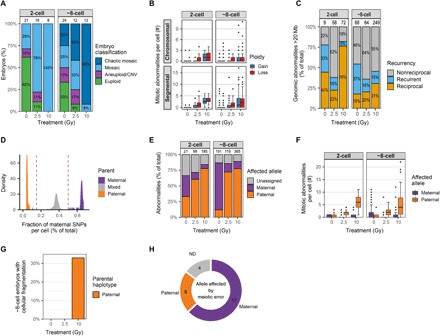Fig. 3. Sperm DNA damage leads to fragmentation of paternally derived chromosomes in early embryos.

(A) Classification of all the embryos for the different treatment groups. Most of the embryos derived from fertilization with damaged sperm are mosaic, containing more than a single genotype. Embryos containing cells with a mix of more than three different genotypes are considered chaotic mosaic. The number of analyzed embryos per group is indicated above the bars. (B) Radiation dosage-dependent increase in the number of whole-chromosome and segmental gains and losses per cell in two- and eight-cell–stage embryos. (C) Many genomic abnormalities (>20 Mb in size) are mirrored between cells, showing reciprocal gains and losses between at least two cells. The relatively high number of nonreciprocal abnormalities, i.e., restricted to one cell per embryo, is largely due to variation in copy number variant (CNV) calls between cells and, in some cases, due to missing or excluded cells. Numbers above the bars indicate the number of unique CNVs per group. (D) Bulk WGS enabled the detection of homozygous SNV positions in the genome of the bull whose sperm was used for all IVF experiments. SNVs in the blastomeres that are different from the SNVs in the father are considered to be maternally inherited SNVs. SNVs overlapping between the father and the blastomeres can be paternally or maternally inherited (if the mother has the same SNV). Figure represents aggregated data from all embryos. (E) Most of the copy number changes (>10 Mb) in embryos derived from fertilization with damaged sperm are located on alleles inherited from the father. Numbers above the bars indicate the number of analyzed copy number abnormalities per group. (F) Sperm DNA damage leads to genomic abnormalities (>10 Mb) on the paternally inherited chromosomes. (G) Quantification of the eight-cell–stage embryos containing fragmented cells. Around a third of the eight-cell–stage embryos produced with 10 Gy–treated sperm contain fragmented cells with only paternally inherited chromosomes. (H) Number of meiotic errors (>10 Mb) on maternally and paternally inherited chromosomes. The copy number changes on the maternal alleles are largely caused by meiotic errors and are shared among all blastomeres from the same embryo. ND, not determined.
